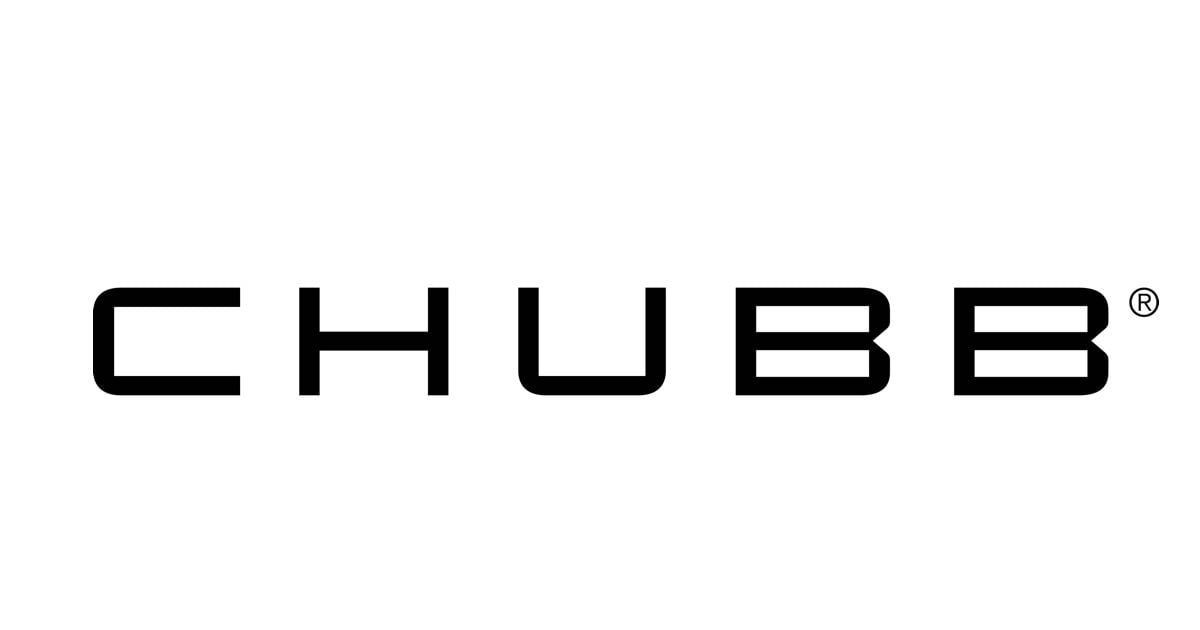Nerdy takeaways
Chubb is the top-rated insurer in California, offering the best coverage for high-value homes.
Amica offers the best coverage for most homes.
Cincinnati Insurance draws the lowest rate of consumer complaints.
Travelers is our best value pick, with an average annual premium of $1,580 compared to the California average of $2,230 per year.
USAA is our top choice for military families.
California has fewer home insurance options than it used to due to recent wildfires, but homeowners still have some top-rated companies to choose from. To help you find the best home insurance in California, we gathered and analyzed data from insurance companies across the state.
Note: Some insurance companies included in this article may have made changes in their underwriting practices and no longer issue new policies in your state. Even if an insurer serves your state, it may not write policies for all homes in all areas.
The best home insurance companies in California
Best coverage for high-value homes

Chubb
- Far fewer consumer complaints than expected for a company of its size.
- Standard coverage includes features that many companies offer only as extras.
- Perks to help you protect your home.
- Most consumers can't get a quote online and will instead need to contact a local agent.
Why it’s worth a look: Chubb caters to affluent homeowners with generous policies and high coverage limits. For example, you may be able to buy up to $100 million of personal liability coverage in case someone sues you. Its policies include water backup coverage, which pays for damage from drains that back up into your home. Most companies charge extra for this coverage.
Standout feature: Chubb policyholders in California are eligible for free Wildfire Defense Services. You can request personalized recommendations to help you harden your home against fires. If a blaze approaches, the service can send firefighters directly to your home.
Average rates: Not available.
» READ MORE: Chubb homeowners insurance review
Best coverage for most homes

Amica
- High customer satisfaction ratings and low consumer complaints.
- Platinum Choice package offers extra coverage.
- Dividend policies can return a portion of your premiums.
- You can start a quote online but may have to finish the buying process by phone.
Why it’s worth a look: Amica offers a wide range of customizable coverage for various types of homes. Its most generous option is the Platinum Choice package, which comes with extra coverage and higher limits. Amica has a strong reputation for service, scoring highly in customer satisfaction surveys by J.D. Power.
Standout feature: Amica’s Contractor Connection program can help you find reputable builders and other professionals to work on your home.
Average rates: Not available.
» READ MORE: Amica homeowners insurance review
Fewest complaints

Cincinnati Insurance
- Various coverage options.
- Far fewer complaints than expected for a company of its size.
- Coverage available for higher-value homes.
- No online quotes.
- Very little information on website.
Why it’s worth a look: Of all the companies we evaluate, Cincinnati Insurance draws one of the lowest rates of consumer complaints. (These are complaints to state regulators as collected by the National Association of Insurance Commissioners.) That suggests its customers are generally happy with their coverage.
Standout feature: The company values environmental sustainability and works out of a LEED-certified headquarters in Fairfield, Ohio.
Average rates: Below are the average annual rates for a range of dwelling coverage limits.
Dwelling coverage amount | Average annual rate |
|---|---|
$300,000 | $1,595 |
$400,000 | $2,060 |
$500,000 | $2,525 |
$600,000 | $2,940 |
$700,000 | $3,350 |
» READ MORE: Cincinnati homeowners insurance review
Best Value
Travelers
- User-friendly website.
- Coverage and discounts for eco-friendly homeowners.
- Ranked below average in recent J.D. Power consumer satisfaction studies.
Why it’s worth a look: Of our top California insurance companies, Travelers had the lowest rates in our analysis. It also has a variety of other discounts you may be eligible for. Ask about savings for bundling home and auto insurance or being a recent homebuyer.
Standout feature: You may be able to add “green home coverage” to your policy. This add-on gives you extra money to use for eco-friendly materials when rebuilding or repairing your home after a covered claim.
Average rates: Below are the average annual rates for a range of dwelling coverage limits.
Dwelling coverage amount | Average annual rate |
|---|---|
$300,000 | $1,025 |
$400,000 | $1,300 |
$500,000 | $1,580 |
$600,000 | $1,865 |
$700,000 | $2,145 |
» READ MORE: Travelers homeowners insurance review
Best for military families

USAA
- Policies include standard coverage that often costs extra elsewhere.
- Fewer customer complaints to state regulators than expected for a company of its size.
- Perks for military homeowners.
- Available only to active military members, veterans, some federal employees and their families.
Why it’s worth a look: USAA sells homeowners insurance to active military, veterans, some federal employees and their families. Its policies include deductible-free coverage for military uniforms and equipment. The company will also waive your deductible if your personal property is damaged or lost due to war.
Standout feature: USAA covers your belongings on a replacement cost basis. That means you’ll get enough money to buy brand-new replacements for damaged items. Many companies pay only what your items are worth at the time of the claim.
Average rates: Below are the average annual rates for a range of dwelling coverage limits.
Dwelling coverage amount | Average annual rate |
|---|---|
$300,000 | $1,510 |
$400,000 | $1,760 |
$500,000 | $2,040 |
$600,000 | $2,445 |
$700,000 | $2,830 |
*USAA membership is open only to active military, veterans, some federal employees and their families. | |
» READ MORE: USAA homeowners insurance review
Other top home insurance companies in California
These home insurance providers are also worth a look.
Company | NerdWallet star rating | Average annual rate |
|---|---|---|
$2,755 | ||
Auto Club of SoCal (AAA) | $2,285 | |
$2,380 |
Common California home insurance problems
Homeowners in California may face the following problems when it comes to home insurance:
Fewer options. Several of the largest home insurance providers, including State Farm and Allstate, have either limited where they sell home insurance in California or stopped offering new policies altogether.
Wildfires. Insurers must give discounts to California homeowners who take certain steps to reduce wildfire risk on their property. For example, you could redo your roof with fire-resistant materials and limit vegetation near your home. But homeowners in high-risk areas may have trouble finding coverage even after taking steps to protect their homes. You can use this website from the U.S. Forest Service to see the level of fire risk in your community.
Flooding. Every California county has had at least one significant flood in the past 25 years, according to the state’s Department of Water Resources. Homeowners insurance won’t cover flood damage, so you’ll need separate coverage if you’re at risk. Here's how to choose the best flood insurance.
To check your flood risk, start with the federal government’s flood maps. However, these maps don’t always capture all types of flood risk. You may want to check another source such as First Street, a company that models climate hazards. Enter your address at the top of the page to see your home’s flood risk rating.
Earthquakes. Earthquakes aren’t uncommon in California, and some of them can be destructive. But a standard homeowners policy won’t cover damage from earth movement. Ask your agent about separate coverage.
Struggling FAIR plan. After the Los Angeles fires in early 2025, California's Fair Access to Insurance Requirements (FAIR) Plan ran out of money for the first time since 1994. The plan was bailed out by the state’s private insurance companies to the tune of $1 billion. The companies were permitted to pass some of these expenses on to their policyholders.
What’s new with California home insurance
In January 2026, new regulations took effect to boost consumer protections and reduce the risk of wildfire damage. For example, one new law set up a program to help homeowners pay for fire-resistant roofs. Another created an additional line of funding for the FAIR Plan.
These laws follow other efforts by the insurance commissioner to shore up the state’s troubled home insurance market. The commissioner’s Sustainable Insurance Strategy started rolling out in late 2024. The measure makes it easier for insurance companies to set rates based on future wildfire risk, but also requires them to write more policies in the riskiest areas of the state.
California FAIR Plan
Insurers may be reluctant to cover homes in high-risk areas. If you have trouble finding a policy, you can turn to the California FAIR Plan, the state’s insurer of last resort.
To apply for a policy, you’ll need to find a licensed insurance broker who is registered to work with the FAIR Plan. You can do this on the FAIR Plan website.
FAIR Plan coverage is limited, paying only for damage due to fire, lightning, smoke and internal explosions. A “difference in conditions” policy can help fill the coverage gaps. Work with an independent insurance agent to find one.
Common optional coverage
A standard homeowners policy can sometimes fall short, so it's worth looking for ways to make it more comprehensive. For example, we recommend asking if your insurer offers extended or guaranteed replacement cost coverage for your home. These add-ons give you extra dwelling coverage in case it costs more than you expect to rebuild your home after a disaster. Having this coverage can be a useful hedge against inflation.
Here are a few additional types of coverage you may want to buy.
Floods are the most common weather disaster in the U.S. and can happen anywhere, not just coastal areas. You can buy flood insurance through the federal government or from private companies. Learn whether you need flood insurance.
Consider buying earthquake insurance if you live in an at-risk area.
Homeowners policies generally won’t cover damage if a drain backs up into your home or your sump pump fails. Adding water backup coverage can help with these issues.
Homeowners policies may cover your stuff on an actual cash value or replacement cost basis. With actual cash value, the policy will pay less for older items that have lost value over time. To get enough of a claim payout to buy brand-new items, opt for replacement cost coverage.
If you have expensive jewelry, fine art or other valuables, you may need extra insurance for them. Learn more about scheduled personal property coverage.
Service line coverage pays to fix damaged water, gas, sewer or other underground lines on your property.
If your HVAC system or another major appliance fails, equipment breakdown coverage can help pay for repairs.
How much does homeowners insurance cost in California?
The average cost of homeowners insurance in California is $2,230 per year, or about $186 per month. That's 26% less expensive than the national average of $3,005 per year for the same amount of coverage.
These rates are based on a sample home insurance policy with $500,000 in dwelling coverage, $300,000 in liability coverage, a $1,000 deductible and no recent claims.
Did you know...
The dwelling coverage limit on your policy should be the amount it would take to rebuild your home, based on the cost of labor and construction in your area. It won't necessarily be the price you paid for the house or how much you could sell it for now. Use our calculator to estimate your home's rebuilding cost.
The median rebuilding cost for California homes is $510,972, according to data from First Street.
Below are the average rates for policies with various dwelling coverage limits.
Dwelling coverage amount | Average annual rate |
|---|---|
$300,000 | $1,425 |
$400,000 | $1,820 |
$500,000 | $2,230 |
$600,000 | $2,655 |
$700,000 | $3,060 |
The rates above are for homeowners with no recent claims on their record. In California, policyholders with one recent claim pay an average of $2,400 per year — an increase of 8%.
Average cost of homeowners insurance in California by city
The amount you pay will vary depending on where you live in the state. For example, the average cost of homeowners insurance in Los Angeles is $2,630 per year, while Sacramento homeowners pay $1,750 per year, on average.
City | Average annual rate | Average monthly rate |
|---|---|---|
Anaheim | $2,355 | $196 |
Bakersfield | $2,130 | $178 |
Chula Vista | $2,155 | $180 |
Fontana | $2,300 | $192 |
Fremont | $1,920 | $160 |
Fresno | $2,105 | $175 |
Glendale | $2,515 | $210 |
Huntington Beach | $2,325 | $194 |
Irvine | $2,355 | $196 |
Long Beach | $2,050 | $171 |
Los Angeles | $2,630 | $219 |
Modesto | $1,835 | $153 |
Moreno Valley | $2,365 | $197 |
Oakland | $2,270 | $189 |
Ontario | $2,310 | $193 |
Oxnard | $1,835 | $153 |
Riverside | $2,450 | $204 |
Sacramento | $1,750 | $146 |
San Bernardino | $2,565 | $214 |
San Diego | $2,065 | $172 |
San Francisco | $2,085 | $174 |
San Jose | $1,875 | $156 |
Santa Ana | $2,325 | $194 |
Santa Clarita | $2,545 | $212 |
Stockton | $1,995 | $166 |
The cheapest home insurance in California
Here are the insurers we found with the cheapest rates for a variety of dwelling coverage limits.
Company
NerdWallet star rating
Average annual rate
Pacific Specialty
Not rated
$890
National General
Not rated
$940
$1,025
CSAA (AAA)
$1,190
$1,315
Company
NerdWallet star rating
Average annual rate
Pacific Specialty
Not rated
$1,130
National General
Not rated
$1,235
$1,300
CSAA (AAA)
$1,515
$1,625
Company
NerdWallet star rating
Average annual rate
Pacific Specialty
Not rated
$1,355
National General
Not rated
$1,550
$1,580
CSAA (AAA)
$1,835
$1,935
Company
NerdWallet star rating
Average annual rate
Pacific Specialty
Not rated
$1,615
$1,865
National General
Not rated
$1,875
CSAA (AAA)
$2,135
$2,260
Company
NerdWallet star rating
Average annual rate
Pacific Specialty
Not rated
$1,865
$2,145
National General
Not rated
$2,200
CSAA (AAA)
$2,420
$2,595
Cheap homeowners insurance in California by claims history
Here are the cheapest home insurance companies in California for homeowners who've filed a recent claim.
Company | NerdWallet star rating | Average annual rate |
|---|---|---|
Pacific Specialty | Not rated | $1,355 |
National General | Not rated | $1,550 |
$1,580 | ||
CSAA (AAA) | $1,835 | |
$2,020 |
These rates are based on a sample homeowner with $500,000 of dwelling coverage, $300,000 of liability coverage and a $1,000 deductible.
Get home insurance quotes in minutes
Answer a few questions to see custom quotes and find the right policy for you.Common discounts
Make sure to ask your home insurance company about any discounts you may be eligible for. Here are some of the most common:
Many insurers offer savings if you buy more than one policy, such as home and car insurance. See our picks for the best home and auto insurance bundles.
Got a burglar alarm, smoke detectors or a smart device that alerts you if you have a leak? Safety and security features like these could earn you a discount.
Sign up for paperless billing or set your premiums to autopay, and you could get a discount.
Many insurance companies give discounts to customers who’ve gone a certain number of years without filing a home insurance claim.
Some insurers offer discounts to new policyholders or reward those who’ve stuck around for a while.
Teachers, doctors, members of the military and others may be eligible for discounts from certain insurers.
Learn more about common home insurance discounts.
California Department of Insurance
To file a complaint against your insurer or learn about your rights as a policyholder, turn to the California Department of Insurance.
The department’s website has useful resources such as a home insurance finder tool. It also offers a list of companies selling difference in conditions policies. Help is available in English and Spanish at 800-927-4357.
How we review home insurance
Our editorial team considers these factors when rating homeowners insurance companies:
This part of our star rating is based largely on consumer complaints to state regulators, as reported by the National Association of Insurance Commissioners. When available, we also include each company’s performance in the most recent J.D. Power Home Insurance Study. Other factors in our consumer experience score include customer-friendly features such as online claims filing and quotes.
We use AM Best and Demotech ratings to confirm each insurer’s long-term financial stability and ability to pay claims.
Companies score higher if they offer many common endorsements and include more comprehensive coverage in their standard plans. In particular, we look at features such as extended coverage for the structure of your home and replacement cost coverage for personal belongings.
We evaluate how many of the most common home insurance discounts each company offers.
See our complete homeowners insurance rating methodology.
Frequently asked questions
If you have a mortgage, your lender will likely require you to have home insurance. Those who buy homes with cash or have paid off their mortgage could legally go without homeowners insurance. However, it’s a risky proposition in a state prone to wildfires and other natural disasters. For more information, read Is Homeowners Insurance Required?
Coverage for fires is a standard part of most homeowners policies. But in California, you may have trouble finding a company willing to insure a home in a high-risk zone for wildfires. You can turn to the California FAIR Plan for fire coverage as a last resort.
Following recent California wildfires, insurance companies have paid billions of dollars in claims. They’ve responded by passing their costs along to policyholders in the form of higher rates. Plus, inflation has raised building costs across the country in recent years. That means it would cost more to rebuild your home if it were damaged — another factor leading to higher homeowners insurance prices.
To save on your premium, ask your insurer if you qualify for any home insurance discounts.
NerdWallet writers are subject matter authorities who use primary, trustworthy sources to inform their work, including peer-reviewed studies, government websites, academic research and interviews with industry experts. All content is fact-checked for accuracy, timeliness and relevance. You can learn more about NerdWallet's high standards for journalism by reading our editorial guidelines.
- 1.California Department of Insurance. Safer From Wildfires. Accessed Feb 20, 2026.
- 2.California Department of Insurance. New Laws Sponsored by Commissioner Lara to Strengthen Consumer Protections and Wildfire Resilience Take Effect January 1. Accessed Feb 20, 2026.
Star rating methodology
NerdWallet’s homeowners insurance ratings reward companies for customer-first features and practices. Ratings are based on weighted averages of scores in several categories, including financial strength, consumer complaints, coverage, discounts, claims process and website functionality. These ratings are a guide, but we encourage you to shop around and compare several insurance quotes to find the best rate for you. NerdWallet does not receive compensation for any reviews or star ratings.
Here’s how we weighted each category to come up with our list of the best home insurance companies:
Consumer experience (40%).
Financial strength (30%).
Coverage (25%).
Discounts (5%).
Read our full home insurance ratings methodology for more details.
Homeowners insurance rates methodology
NerdWallet calculated median rates for 40-year-old homeowners from various insurance companies in ZIP codes across all 50 states and Washington, D.C. All rates are rounded to the nearest $5.
Sample homeowners were nonsmokers with good credit living in a single-family, two-story home built in 1984. They had a $1,000 deductible and the following coverage limits:
$500,000 in dwelling coverage.
$50,000 in other structures coverage.
$250,000 in personal property coverage.
$100,000 in loss of use coverage.
$300,000 in liability coverage.
$1,000 in medical payments coverage.
We made minor changes to the sample policy in cases where rates for the above coverage limits or deductibles weren’t available.
In states where credit is a rating factor, we changed the credit tier from “good” to “poor,” as reported to the insurer, to see rates for homeowners with poor credit.
In select states, we added a single wind damage claim to see rates for homeowners with a claim on their record.
These are sample rates generated through Quadrant Information Services. Your own rates will be different.
Complaint methodology
NerdWallet examined complaints received by state insurance regulators and reported to the National Association of Insurance Commissioners in 2022-2024. To assess how insurers compare with one another, the NAIC calculates a complaint index each year for each subsidiary, measuring its share of total complaints relative to its size, or share of total premiums in the industry. To evaluate a company’s complaint history, NerdWallet calculated a similar index for each insurer, weighted by market shares of each subsidiary, over the three-year period.
NerdWallet conducts its data analysis and reaches conclusions independently and without the endorsement of the NAIC. Ratios are determined separately for auto, home (including renters and condo) and life insurance.
Rebuilding cost methodology
The median home rebuilding cost referenced above is based on 2025 replacement cost data from First Street, a climate risk modeling firm. Actual replacement costs may vary based on factors like location, square footage, construction materials, the age of your home and local labor costs.







